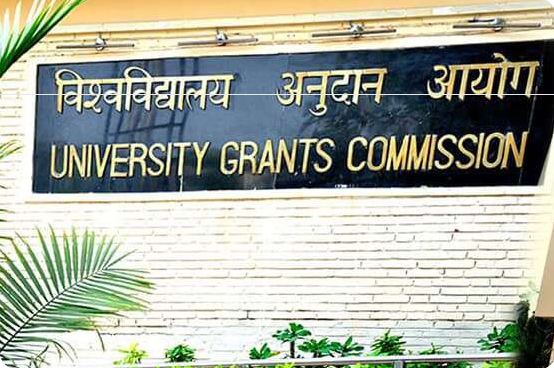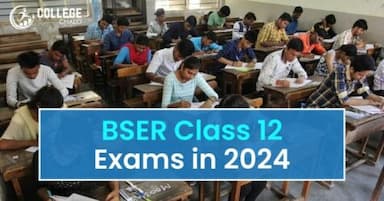PhD Coursework : Latest UGC Guidelines , Syllabus

PhD Coursework gives students a thorough grasp of their subject topic and the ability to perform independent research. The University Grants Commission (UGC) of India has published new PhD coursework guidelines and syllabus to improve quality and relevance.


The latest UGC guidelines compel institutions to emphasise interdisciplinary and skill-based courses over subject-specific ones. Besides subject-specific courses, the new syllabus emphasises research techniques, ethics, and critical thinking. The guidelines require colleges to allow students to conduct research and speak at national and international conferences.
These new guidelines and syllabus are designed to enhance PhD coursework in India and develop better researchers with the ability to succeed. This article will examine the latest UGC guidelines and syllabus for PhD coursework and how they are projected to affect Indian research.
Is it mandatory for PhD Scholars to complete coursework?
Absolutely, in accordance latest UGC Guidelines After being admitted into the PhD programmes each student must take a minimum of one semester (six months) of pre-PhD courses. Coursework is a crucial component of any doctorate programme since it lays the groundwork for both the Literature Review and the subject selection processes.

The coursework requirements guarantee that students understand their subject area in depth and breadth. The coursework helps students create a research and dissertation topic. Doctoral candidates might narrow their dissertation interests by completing courses that deepen their knowledge of a field.. The level of specialisation they take in their approach will determine the coursework that they enrol in.
A course on research technique, which may include experimental procedures, quantitative and statistical methods, and computer applications, is required to be taken as part of the course work that will be counted as pre-PhD preparation and will be required to be taken.


Ph. D CourseWork: Latest UGC Guidelines
- According to UGC Regulations 2016: Minimum Standards and Procedure for Award of PhD. Degree, a research scholar admitted to the PhD programme is required to complete coursework for a minimum of one semester.
- During the first one or two semesters, all candidates accepted to the PhD programme must complete the coursework specified by the Department. In the event of maternity, female applicants may be granted a relaxation of two terms or semesters.
- However, if the student is unable to complete the coursework within the prescribed time limit due to valid reasons, the student may file an appeal and the Vice-Chancellor (VC) may grant an extension of up to one semester based on the recommendation of the Appeals Committee (RAC).
- Failure to complete coursework within the extended time frame may result in revocation of admission.
- The Department may exempt candidates from the PhD coursework who already possess an M. Phil degree and have been admitted to the PhD programme, or who have already completed the M.Phil coursework and have been permitted to proceed to the PhD in an integrated course. All other candidates admitted to the PhD programme must complete the PhD coursework stipulated by the Department.
- Seventy-five per cent (75%) attendance is required in coursework classes.
- The coursework should be evaluated using both continuous assessment and a culminating exam.
- The minimum passing grade for each exam is 55 per cent.
- The objective of the UGC guidelines for PhD coursework is to ensure that doctoral candidates have a solid foundation in research methodology and are endowed with the skills necessary to conduct research in their chosen area of specialisation.
Also, read Predicted Hot Topics for UGC NET Management Subject 2023

PAPER – I RESEARCH METHODOLOGY
Unit I: Scientific Research and Approaches to Study Social Phenomena

This unit focuses on the meaning and nature of science, the characteristics of scientific research, and the types of research methods. It also covers the nature of social phenomena, approaches to study social phenomena and ethics of social research.
Unit II: Problem Formation, Research Topic, and Hypothesis
This unit covers problem formation and selection of research topics, sources for selecting research topics, types of variables and their selection, research objectives and purpose, types of research questions and their characteristics, types of hypothesis, and formulation and testing of hypothesis.
Unit III: Research Design and Planning
This unit covers the meaning and types of research design, the advantages of designing research, stages for outlining a research proposal and planning for a good research project.
Unit IV: Sampling Techniques
This unit covers the purposes and principles of sampling, types of sampling and sample size, qualitative and quantitative approaches, and principles of PRA and FRA techniques.
PAPER – II: COMPUTER APPLICATION
Unit I: Data Collection Techniques
This unit covers methods and techniques of data collection, sources of data collection (primary and secondary), schedule and questionnaire, observation, interview, group discussion and key-informant interview, case study, survey, content analysis and projective techniques.
Unit II: Data Processing and Analysis
This unit covers data processing and distribution, tabulation of data, diagrammatic representation, and statistical manipulation of data including frequency of distribution, measures of central tendency, measures of dispersion, comparison, correlation analysis, regression analysis, and chi-square test.
Unit III: Basic Computer Studies
This unit provides an overview of computer applications.
Unit IV: Computer Application: SPSS
This unit covers an introduction to SPSS software, data entry and manipulation using SPSS, and data analysis using SPSS.
CONCLUSION
Finally, the recent UGC guidelines and syllabus for PhD coursework will improve doctoral education in India. The guidelines emphasise multidisciplinary and skill-based courses to provide PhD students with a wide variety of abilities and knowledge for their professions. By requiring research involvement and conference presentations, the guidelines encourage students to do research and share their results, helping India’s research ecosystem thrive.
The current UGC guidelines and syllabus for PhD coursework are a great step towards strengthening doctoral education in India, and their proper implementation may help develop better researchers who are skilled in their domains.
Also, read Difference between NTA UGC NET and JRF






